From tradition to destruction: the lost libraries of Chinguetti
During the Middle Ages, Sahara outposts often found themselves filled with travelers, traders, and pilgrims passing through with their differing tasks. The pilgrims in particular interest us here, as they would sometimes meet and share religious scriptures amongst each other and with their hosts. One of the results of these interactions is unique libraries. However, the rare texts held at places like Chinguetti are in danger.
Chinguetti is a city situated on the Adrar Plateau, in the Ardar Region of northern Mauretania. Whilst the surrounding area has been inhabited by humans for thousands of years, it was during the Medieval period that Chinguetti rose to prominence, due to its status as a trading center. As one of the few outposts in the Sahara Desert, Chinguetti also became a meeting place for pilgrims from the region who were on their way to the holy city of Mecca.
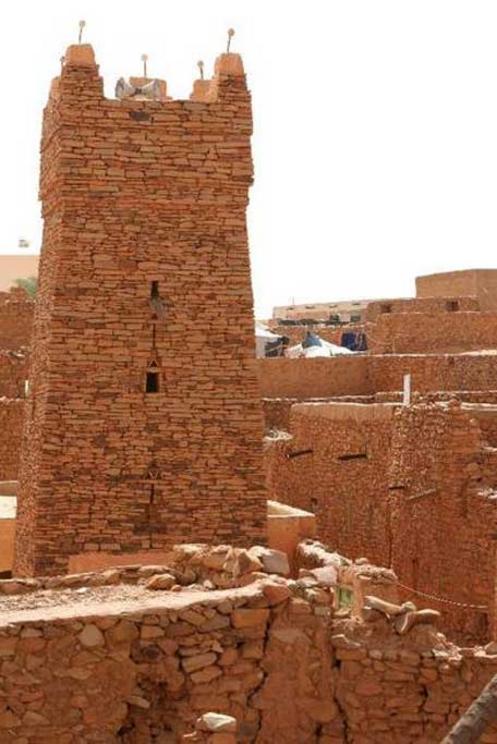
Old town, Chinguetti, Mauritania. (CC BY SA 1.0)
One consequence of this was the establishment of libraries, which were built to store the religious texts left behind by these pilgrims as they continued their journey. Today, only a handful of these ancient libraries remain, thus they are of great historical significance. Nevertheless, it is a race against time, as the way these manuscripts are being stored is not conducive to their preservation.
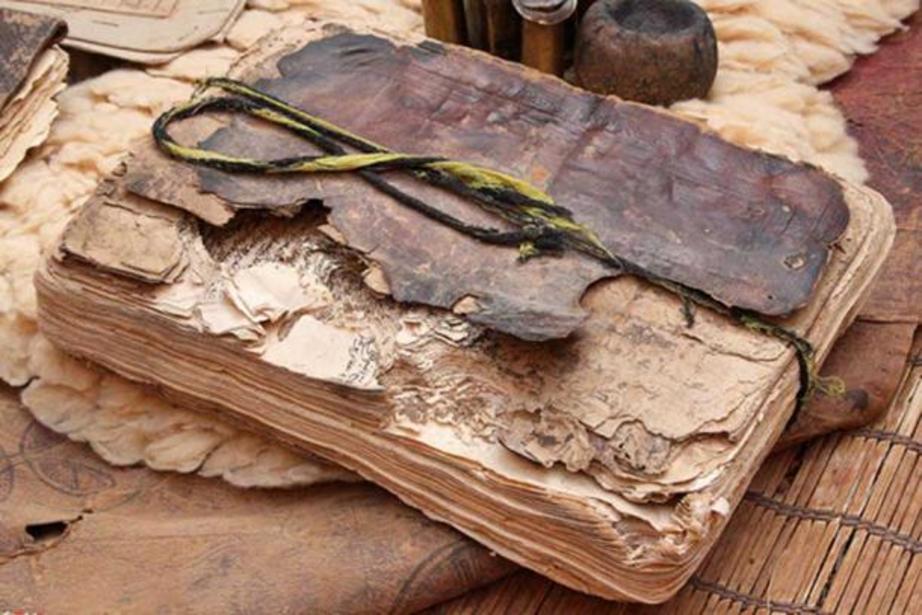
Manuscript from a private library in Chinguetti. (La Mauritanie)
Chinguetti’s Inhabitants and Visitors
Archaeological evidence suggests that the human presence in the area around Chinguetti can be traced back several thousand years. The city itself, however, was established during the Medieval period, around the 12th century AD, and originally functioned as a resting point on the Saharan trade routes that traversed modern day Morocco, Mauretania, and Mali. According to one source, the city could accommodate as many as 30,000 camels at any given time, and it was the goods transported by such camel caravans that made the city prosperous.
Yet, as an outpost in the Sahara Desert, Chinguetti was not only visited by trade caravans, but also by Muslim pilgrims who followed the trade routes on their journey to Mecca. To accommodate the spiritual requirements of these pilgrims, a large mosque, the famous Chinguetti Mosque, was built. Additionally, libraries began to be established, as the pilgrims brought with them manuscripts containing religious texts which they passed on to the inhabitants of Chinguetti.
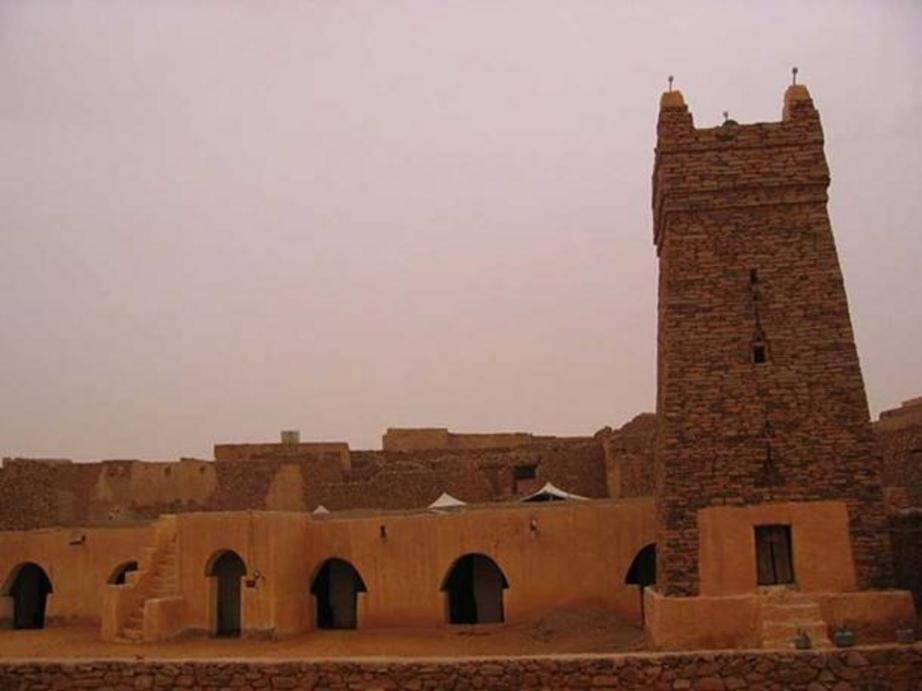
Chinguetti Mosque. (CC BY SA 3.0)
The Libraries of Chinguetti
Over the centuries, many of these libraries were founded in the city. These libraries not only stored religious manuscripts, but also contained works from a variety of subjects, such as astronomy, law, and mathematics. This is because during its heyday, Chinguetti was also a hub for intellectual activity, as scholars, like the merchants and pilgrims, also journeyed along the Saharan trade routes, and stopped at Chinguetti too.
The libraries of Chinguetti originated as private enterprises and continue to be so. The collection of manuscripts is passed from one generation to the next, all the way to the present day. For example, a private library was established during the 19th century by Sidi Ould Mohamed Habott, and has been in the same family for four generations. The collection of the Habott family contains as many as 1400 manuscripts covering a dozen different subjects. The manuscripts in this library also date to different time periods. The oldest, for instance, dates to the 11th century, and is found to have been written on Chinese paper.
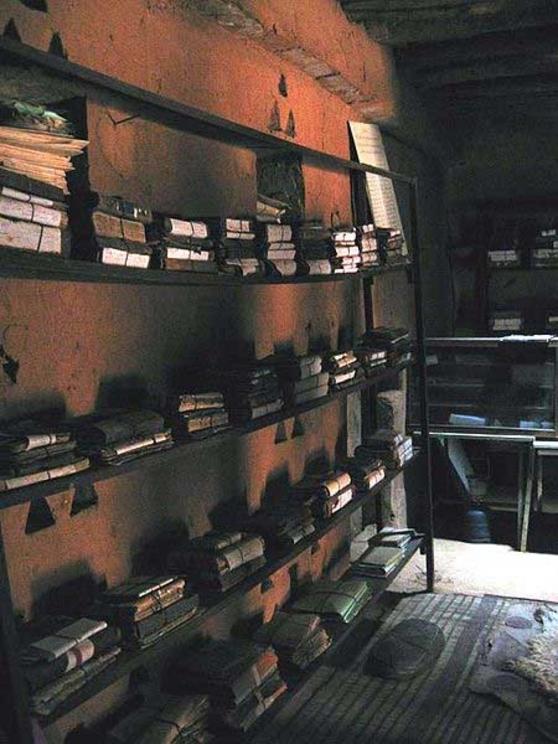
Qur'an collection in a library in Chinguetti. (CC BY SA 3.0)
Private Collections and Destruction
Today, the private library of the Habott family is one of the roughly ten surviving libraries in Chinguetti. It has been estimated that about half a century ago, there were as many as 30 libraries in the city. Many of these libraries and their precious contents have disappeared within this short period of time.
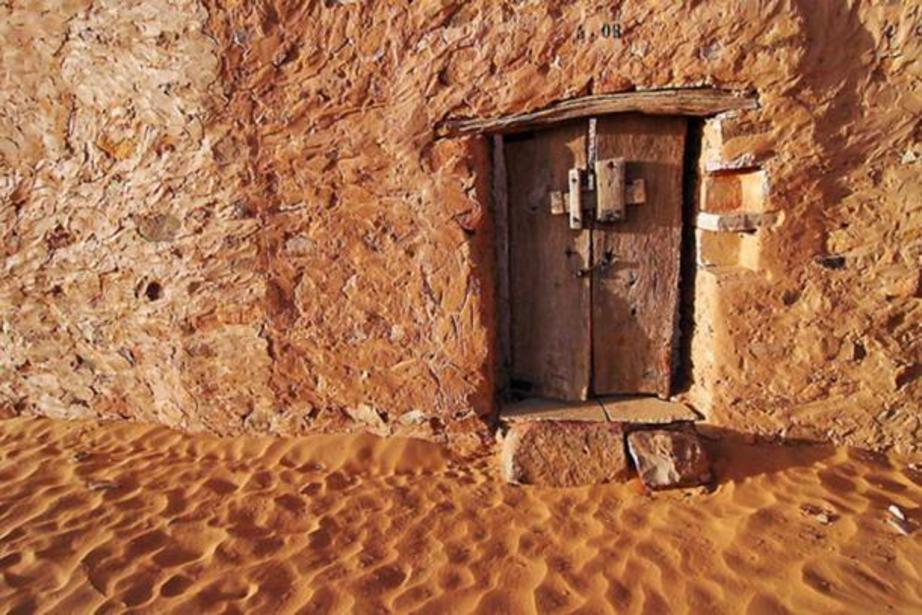
A private library in Chinguetti, Mauritania. (La Mauritanie)
The remaining libraries are also under threat today. The manuscripts in the libraries of Chinguetti are being kept in wooden trunks or boxes. Such storage conditions do not help with the preservation of these manuscripts and there is a real threat of them deteriorating even further. Efforts to save them, however, have not met with much success, as the owners of the libraries are adamant about upholding their tradition, and not allowing the manuscripts to pass into the hands of museum authorities or conservation experts.
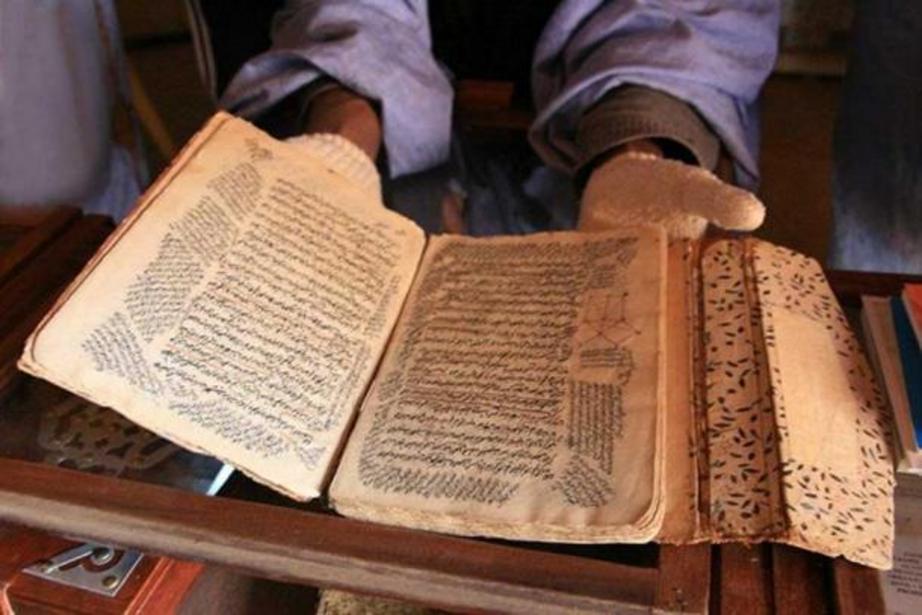
Manuscript in a private library in Chinguetti. (La Mauritanie)
For the rest of this article please go to source link below.

